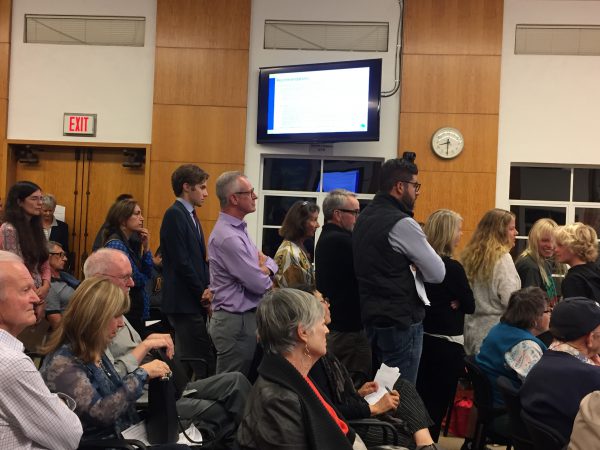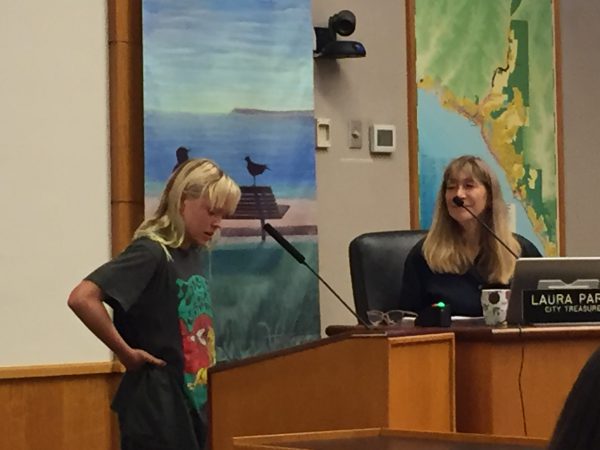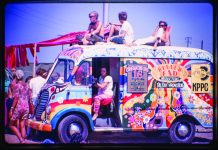
By Daniel Langhorne, Special to the Independent
Laguna Beach’s neighborhood trolleys will keep rolling, on a modified schedule, after the City Council heard overwhelming support Tuesday from riders who use the weekday and Saturday neighborhood transit service.
Dozens of residents, including about 10 students, spoke in support of maintaining the trolleys.
The only routes set to be canceled are Routes 1 and 2 in North and South Laguna. A new Weekday Coastal route will run from 7 a.m. to 6 p.m.
The City Council rejected city staffers’ proposal to cut trolleys serving Top of the World, Bluebird Canyon, and Arch Beach Heights because of declining ridership over the few years. These routes will run from 6:30 a.m. to 6:30 p.m.
Mayor Pro Tem Steve Dicterow said the neighborhood trolleys’ cost is justified because they provide essential transportation for a diverse cross-section of Laguna Beach residents.
“[Government] provides for those who can’t do for themselves,” Dicterow said. “So when we’re talking about some seniors who don’t have vehicles, disabled people, the students, they need this transportation, this an essential part of people’s lives.”
The neighborhood trolley operating budget for Fiscal Year 2019-20 is pegged at nearly $1.5 million. State and federal grants cover just over $1 million of that total.
City staffers estimate it costs about $80 per hour to operate a trolley. Over the last two years, a neighborhood trolley ferried, on average, 5.5 riders board every hour, costing the taxpayers about $16 per boarding.
Laguna Beach parent Carole Reagan said the way the city presented these figures is misleading because state and federal grants pay most of the tab, not the General Fund.
“In a city that promotes itself as focused on sustainability and in which traffic and parking congestion are a severe and increasing problem, eliminating public transit is the last thing a responsible government should do,” Reagan wrote in a letter to the City Council and city staff.
Councilman Peter Blake said at a previous meeting that the neighborhood trolley service is a giveaway so families living in multi-million dollar homes have a low-cost transportation solution for their children. This year, the Laguna Beach Unified School District charges $364 for a round-trip school bus pass.
Laguna Beach High School is not part of the school bus system, so some students take the bus to and from school. Paula Faust, deputy director of public works, said 18 to 20 boardings per day are high school students.

Robin Hall, a 40-year Laguna Beach resident, took aim at the trolley’s unreliability as a major reason for the ridership decline.
“The neighborhood trolleys should be a resident-serving public benefit,” she said. “For public transportation to be successful, it must be convenient and reliable. Unfortunately, neither adjectives can be used to describe the trolleys.”
Shohreh Dupuis, assistant city manager and director of public works, said a new standalone Laguna Trolley app became available on the App Store on Tuesday. A demonstration of the new app at Tuesday’s meeting appeared to show a much smoother and intuitive interface. Visit Laguna Beach hosted the trolley tracker on its smartphone app for years, but City Manager John Pietig directed the development of a standalone app after receiving complaints about its reliability.
The City Council requested city staffers to return with an update on the neighborhood trolleys’ ridership in October 2020.




